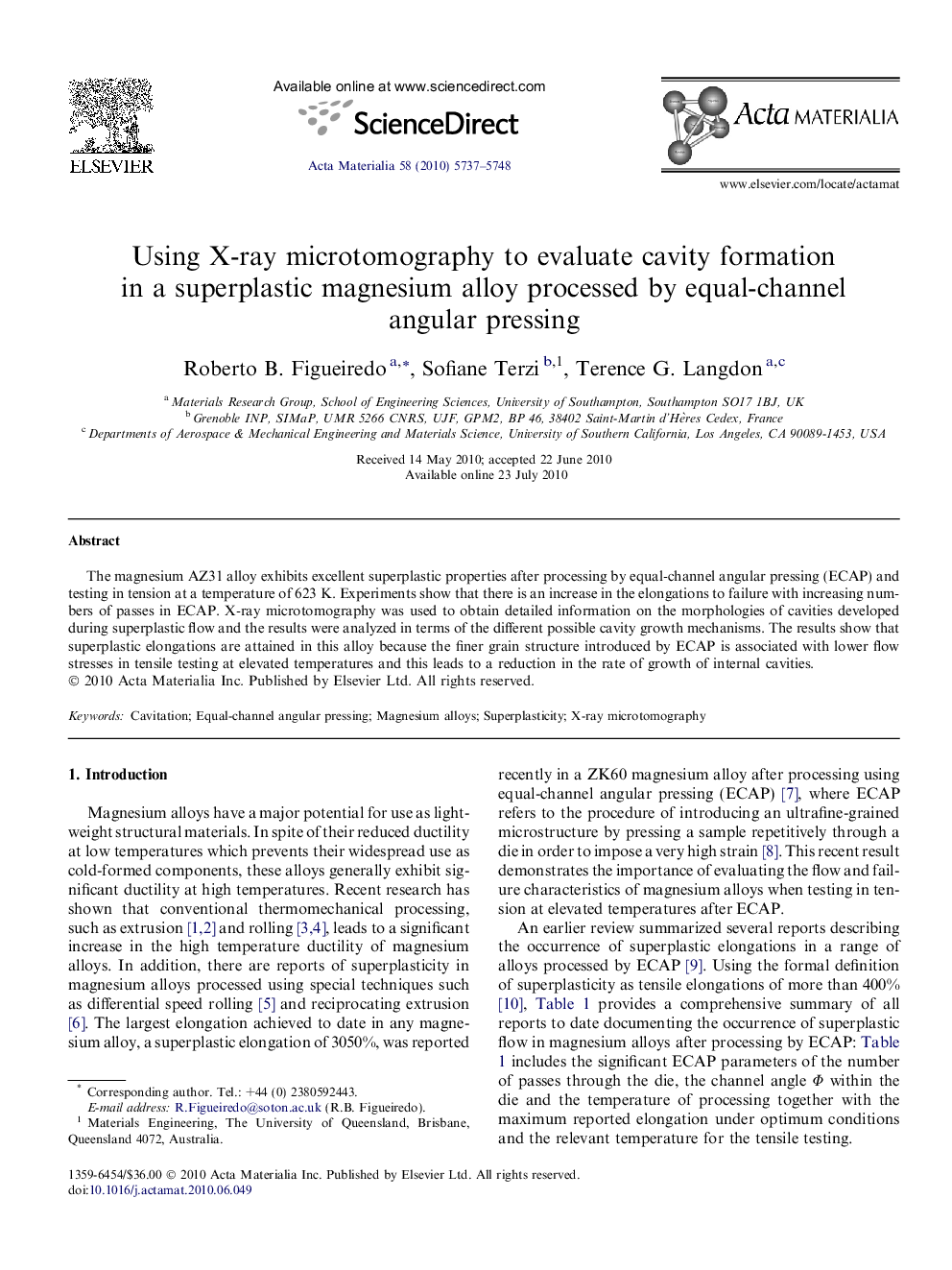| Article ID | Journal | Published Year | Pages | File Type |
|---|---|---|---|---|
| 10620721 | Acta Materialia | 2010 | 12 Pages |
Abstract
The magnesium AZ31 alloy exhibits excellent superplastic properties after processing by equal-channel angular pressing (ECAP) and testing in tension at a temperature of 623Â K. Experiments show that there is an increase in the elongations to failure with increasing numbers of passes in ECAP. X-ray microtomography was used to obtain detailed information on the morphologies of cavities developed during superplastic flow and the results were analyzed in terms of the different possible cavity growth mechanisms. The results show that superplastic elongations are attained in this alloy because the finer grain structure introduced by ECAP is associated with lower flow stresses in tensile testing at elevated temperatures and this leads to a reduction in the rate of growth of internal cavities.
Keywords
Related Topics
Physical Sciences and Engineering
Materials Science
Ceramics and Composites
Authors
Roberto B. Figueiredo, Sofiane Terzi, Terence G. Langdon,
